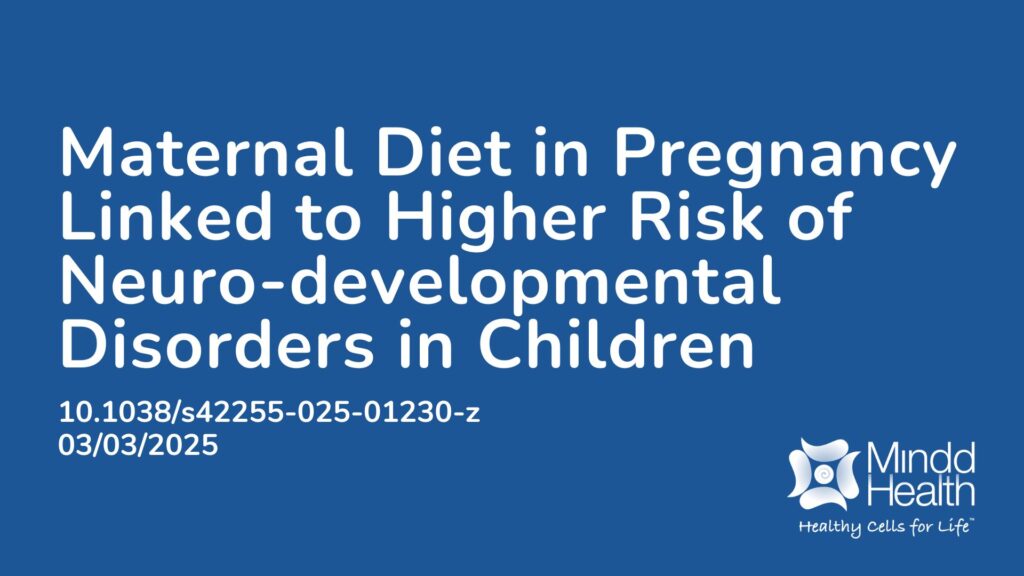Summary:
The rates of neurodevelopmental disorders, such as Autism Spectrum Disorder (ASD) and Attention-Deficit Hyperactivity Disorder (ADHD), are increasing drastically. Yet, much is still unknown about their causes and risk factors. This paper examines whether a mother’s diet during pregnancy affects her child’s brain development by investigating the impact of Western-style diets on the likelihood of neurodevelopmental disorders in children. The study analyzed 508 mothers, assessing their diet at 24 weeks of pregnancy and evaluating their children for ADHD and ASD at age 10. The results showed significant links to both conditions. To validate these findings, the authors examined data from three additional large cohorts of mothers and children, totaling 59,725 participants. Using various methods, including dietary surveys and analyses of maternal and fetal blood metabolites, they identified 15 metabolites associated with a Western diet during pregnancy that may help predict ADHD. By analyzing blood samples at five different points during pregnancy from two independent cohorts, the study consistently found that mothers who followed a Western diet had a higher likelihood of having children with neurodevelopmental disorders. These findings highlight the potential benefits of specific dietary changes during pregnancy to reduce the risk of such disorders, emphasizing the importance of early intervention.
Abstract:
Despite the high prevalence of neurodevelopmental disorders, the influence of maternal diet during pregnancy on child neurodevelopment remains understudied. Here we show that a western dietary pattern during pregnancy is associated with child neurodevelopmental disorders. We analyse self-reported maternal dietary patterns at 24 weeks of pregnancy and clinically evaluated neurodevelopmental disorders at 10 years of age in the COPSAC2010 cohort (n = 508). We find significant associations with attention-deficit hyperactivity disorder (ADHD) and autism diagnoses. We validate the ADHD findings in three large, independent mother–child cohorts (n = 59,725, n = 656 and n = 348) through self-reported dietary modelling, maternal blood metabolomics and foetal blood metabolomics. Metabolome analyses identify 15 mediating metabolites in pregnancy that improve ADHD prediction. Longitudinal blood metabolome analyses, incorporating five time points per cohort in two independent cohorts, reveal that associations between western dietary pattern metabolite scores and neurodevelopmental outcomes are consistently significant in early–mid-pregnancy. These findings highlight the potential for targeted prenatal dietary interventions to prevent neurodevelopmental disorders and emphasise the importance of early intervention.
Article Publication Date: 03/03/2025
DOI: 10.1038/s42255-025-01230-z



